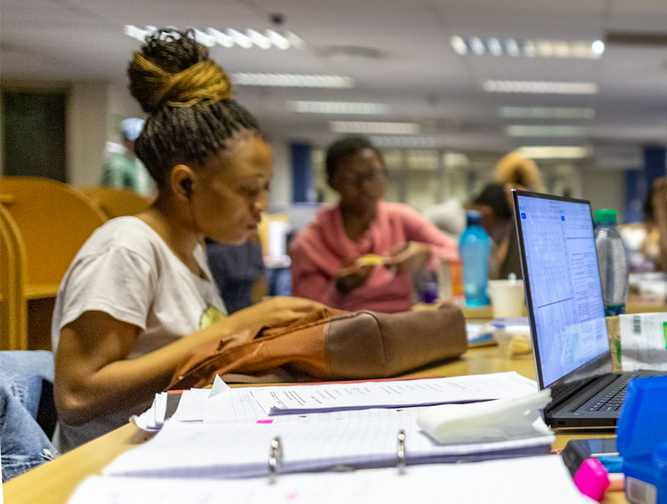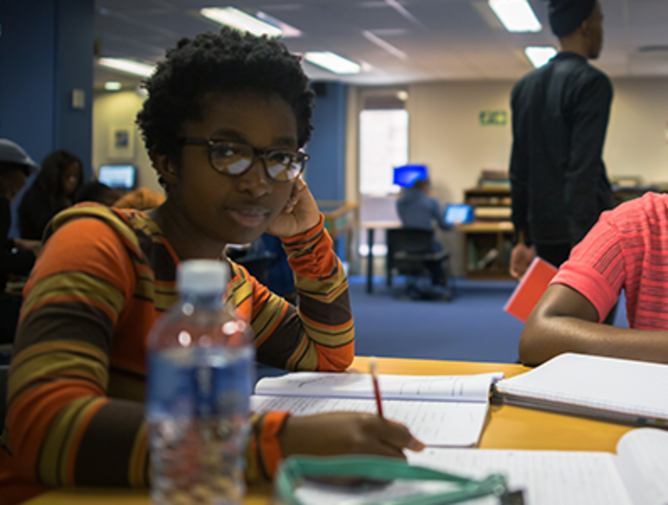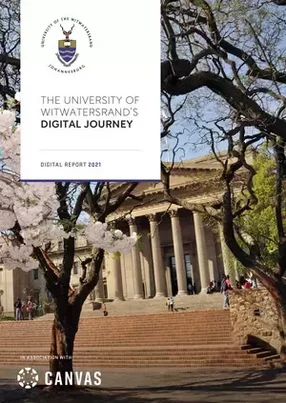As with many universities across the globe, The University of the Witwatersrand (Wits) in Braamfontein, Johannesburg has had to adapt to navigate challenges brought about by the coronavirus pandemic while simultaneously looking to push forward with its digital transformation.
Established in 1922, the university will soon be celebrating its 100th birthday and is taking the lead in reimagining trendy Braamfontein to further its contribution in delivering high-level scarce skills for the global knowledge economy.
Tasked with creating and driving the University’s digital journey is its Chief Information Officer, Dr Stanley Mpofu.
Mpofu’s knowledge of the University comes from his experiences both as staff but also as a student, now alumni. Speaking of the University, Mpofu shared some of the institution’s values: “We have 5 different faculties with support areas, with academics, with support people, students. So in such a situation, collegiality becomes very critical, but also it is a university that is quite visionary in terms of how it wants to project itself for the future.”
In his role, Mpofu looks to take the University on its digital journey and support both staff and students as they transition into the new digital world. Supported by his colleagues, Mpofu explained the vice-chancellor, Zeblon Vilakazi, has views that align with his own: “It makes me very comfortable in a university where the vice-chancellor looks at technology as core to what the university needs to do.
“As a top university being at the top is something that is cherished, there’s intensive research. The operations must be of a high standard in order for the throughput of students, the researchers, and the lecturers to have the comfort to produce good results that keep us competitive as an institution,” he continued.
Creating a digital proposal for success
Although it goes without saying that Wits had many challenges to overcome as the world went into lockdown, as a university previously dedicated to its digital journey, Wits already had some strategies in place which supported its transition to remote learning.
Mpofu said concerning this: “Our university has always been progressive. In 2018, I presented a digital proposal for smart classrooms at Wits university. It was approved at the beginning of 2018 and by 2019, we had implemented three smart classrooms in the west campus, east campus, and the management school. Which meant that online courses had already been introduced.
With this strategy already in place to support students who struggled to get to campus for various reasons, Wits were prepared for the unexpected transition to remote learning: “We were the first university in South Africa, if not Africa, that was able to continue with lessons as if nothing had changed,” explained Mpofu.
“The only challenge was that we had to buy laptops very quickly. We had to make sure that the poorer students were able to get hold of the laptops. And we had to make agreements with the mobile network operators [to give students access to Wi-Fi],” he added.
COVID-19 and the impact on the role of a CIO
With its digital strategy in place before the pandemic broke out, Wits was equipped with the necessary tools to support its staff and students. Blended learning, and the idea that students can work both online and on-site, was already prevalent in the University prior to the students having to work from home.
Noting some changes as a result of the pandemic, Mpofu explained how his strategies had to become intertwined with the university’s on-line based learning strategy.
“With the smart classrooms and blended learning already in place, I also contributed to the academic blended learning strategy, everything then was aligned before we went into lockdown,” said Mpofu.
Mpofu also noted the change he saw in his own role and the change in others’ attitudes surrounding the role of a CIO: “People actually began to realise the importance of ICT. IT is actually a very critical component of the academic learning process going forward because the future is driven by technological advancements.”
Lockdown accelerating the shift towards a digitalised future
Despite the challenges and hardships most have experienced with the COVID-19 pandemic, it has acted as a catalyst in many organisations and industries when it comes to digital transformation.
Wits is no exception and Mpofu explained: “From an IT perspective, it helped us to make sure that there was an acceleration in the digital route. Right now no one is talking about going back to full-time, face-to-face learning. It's now acknowledged that if meetings and learning can happen when people are not necessarily face-to-face. We just need to innovate the rest of the activities.”
Now, Mpofu is looking at innovative ways to allow for things more challenging to be digitalised, such as practical examinations and experiments. Once these are digitalised it’s not essential for students to physically attend the university.
Supporting Wits’ digital future with more strategies and app development
Understanding the importance of his role to the success of Wits, Mpofu, on top of his work transitioning learning online, has been putting in place other strategies to support the University’s transition to digitalisation.
Wits now has unified comms along with mobile applications that Mpofu has helped develop to improve the day-to-day running of the university. These apps help staff and students to complete health and safety questionnaires about COVID-19 to ensure that it is safe to return to the university buildings.
There is also an app for students which they can use to ask for assistance, report something or find resources.
Along with his cyber security strategy, all of these technology-enabled solutions Mpofu has pushed for at Wits “are being developed to make sure that [the University] is equipped for a digital future.”
Harnessing cloud services to avoid IT disaster
Mpofu’s plan to adopt cloud technologies to support its learning management system and data storage is crucial to the University.
Utilising Amazon Web Services (AWS) and Microsoft Azure’s cloud technology, Mpofu explained: “I had a big project idea of putting the learning management system on the cloud by the time the semester started. On one side I was dealing with the lockdown and on the other side, I had this huge project, which I worked with alongside AWS. We were able to put everything on the cloud on time, which was very critical.
It was essential that Mpofu adopted these cloud technologies due to electrical shortages and cutouts in South Africa which had the potential to cause big problems for Mpofu and his team.
These shortages can result in both staff and students losing files. A particular concern as the university has adopted a blended learning strategy. This risk is reduced with the introduction of cloud platforms for storing data and files.
Working with Instructure for a streamlined learning experience
Highlighting the busy, ever-changing aspect of Mpofu’s role is yet another example of how technology has enabled the university to become more digitalised. Wits sought the help of software company, Instructure, which has developed the online learning management system, Canvas.
“We were working with academics to find the ideal learning management system for the future because the university had so many different models and we wanted one learning management system,” said Mpofu.
“A committee was set up and we came up with the solution that we should go for Canvas. We were able to roll out the system at the start of this year before the students started,” he continued.
Happy with the software Instrucutre provide, Mpofu explained the team were always quick to respond to any issues the University had with Canvas: “With IT, it's the speed of delivery that is critical because when something is not working, it can affect quite a lot of things down the line.”
The transition to a completely digital university
Having described his leadership style as “transformational”, “strategic” and “visionary”, it comes as no surprise that Mpofu has ambitious plans for the digitalised future of the University.
“I want my university to be a digital university. I want to get to a stage where everything is paperless and exams are done online. I want to get to a situation where students do not need to be inside the university to get things done, everything could be done online,” said Mpofu.
Expanding on his drive to become a wholly digital university, Mpofu explained he hoped that one day the University’s intake capacity would not be restricted by the capacity of the University’s buildings.
Instead, he hopes, through technological innovation, the University will be able to offer places to students regardless of their location, with the option to work completely remotely from other countries, even continents.
Shedding light on the multitude of benefits this could bring, Mpofu said: “ I also look at that as something that will bring more income. And when I think of a digital university, I'm thinking we may not even need residents as they haveaccess from wherever they are. So I'll save costs on building and I will save costs on security to look after the students and save costs on people that have to go and clean the university residents buildings.”
What is clear, through his visionary plans and innovative thinking, Mpofu is set to and will continue to, digitally transform The University of the Witwatersrand.
Mpofu himself says how different he hopes universities will become in the future: “My digital university is a totally different model from the current model and I'm sure in the next 50 years universities are not going to be the same.”



